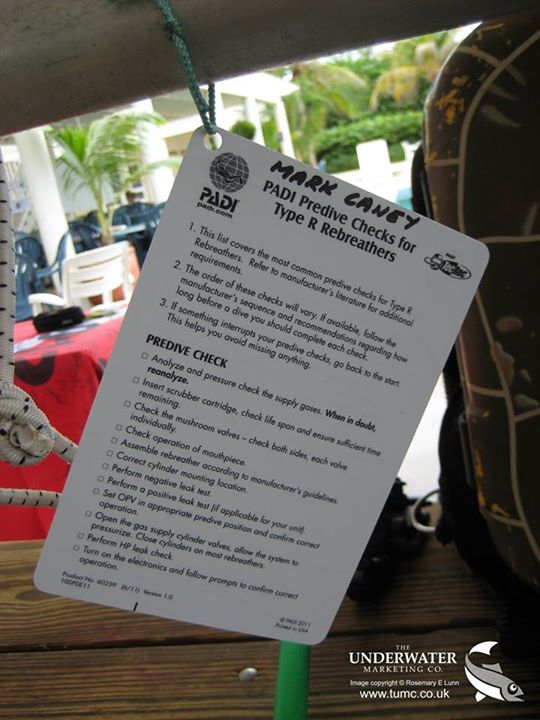The RTC is promoting the use of checklists for divers. Technical diving operations are complex and there are many things to remember when planning a dive. The routine actions that should be standard before every technical dive are involved and can be easily overlooked if the diver gets distracted or fails to follow a systematic approach. Pilots, astronauts, surgeons and many other professionals who work in fields where lives are at risk all use simple checklists every time they initiate a task, even though they may have done it thousands of times before.
There’s a good reason why checklists are used: they save lives. It takes little time to go step-by-step through a checklist, but it ensures that nothing critical is overlooked. A checklist is probably the cheapest piece of life support equipment a technical diver will own, but it will look after you, dive after dive.
We asked some key figures why and how they use checklists and we will feature them one by one over the coming weeks. Click here to see what they had to say.

